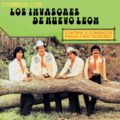
For decades, the news and media has been successful in showing the dark reality of what drug cartels do. By showing explicit pictures and videos of the killings and shootings that narcos and drug cartels go through in order to protect their territory or fight against law enforcement, people have been able to see this type of lifestyle as dangerous and non-appealing. For years, people were aware of these issues through the depiction of drug cartels on media platforms as cold-blooded people with a very violent and savage life; however, the recent use of social media has given drug cartels the ability to show a different side of their dangerous “career” and lives to the public.
Tik Tok was created to be used as a platform for young men and women to post entertainment videos, music, and other forms of art. However, there has been a rise in Tik Tok use within drug cartels to promote their lifestyle and attract young men into joining their organizations. Instead of posting videos about the kidnappings, gun violence, and other violent crimes that is involved in the drug world, cartel members now post videos depicting a lavish lifestyle with excessive cash, exotic animals, luxurious cars and beautiful vacation trips they can pay with the money ivolved in the drug business. These types of videos are ignoring the harsh reality of these lifestyles by only focusing on the “pretty things’’ about joining the cartel. They are pushing a “narco culture” onto the young population by posting videos bragging about their money, cars, and mansions while playing a narco-corrido in the background. Through this, drug cartels are corrupting the use of social media, normally used to promote entertainment, music, art, new businesses, etc., to influence the youth into joining a dark and violent world. If successful, these videos will only strengthen powerful drug cartels more in Mexico and other Latin American Countries that struggling with these issues.







Before social media, a lot of these tactics you see were limited to your neighborhood or town. Because a lot of Mexico remains very poor, cartels go around showing off their riches to youths who might struggle to find their next meal. A car, designer clothes, a phone, hell even abundant food for some is used for recruitment. Owning a gold-plated weapon was the immediate and definite sign that that person was a cartel member. And why do they do it? To show off and to entice an impressionable teenager into joining their awful lifestyle. Corrido too is used by some as a recruitment tool. By having people sing about you and your group, depicting you as a hero or legend romanticizes the lifestyle you live. I have no doubt that this inspires some to join a cartel in pursuit of being remembered.
For one, I hope that accounts like these are investigated and taken down. No more people should want to join such evil organizations. And two, I hope this brings to light tactics that are used on impressionable and often desperate youth in Mexico by people in their own community.
Hello David!
You’re bringing light to a dark side of social media, that could be a serious threat to impressionable youths. Tik Tok has been branded as a light-hearted place of endless entertainment populated by influencers raking in cash, and everyday people feeding into the craze. I actually think I have seen one of the videos depicted in the cover photo of your article, but didn’t realize the video could have been a recruiting tactic for young boys and men to join the lucrative world of drug cartels. It would have been laughable even five years ago to compare cartel members to influencers, but here we see the two worlds colliding. Macho criminals are now strategically posting videos with carefully selected imagery and songs to lure future recruits. I wish there was a breakdown of statistics to show the breakdown of these social media narco campaigns. It is increasingly concerning in today’s world as children younger and younger are granted unrestricted cell phone use in an age of a technology boom. Even young boys in the US could be influenced by this, as they do not have the capacity to understand the price at which the lavish lifestyles of cartel members come at. I could definitely see other criminal groups using Tik Tok to their advantage to recruit. Social media platforms should do a better job of filtering criminal content out of their pages to ensure the content does not reach impressionable people or children.